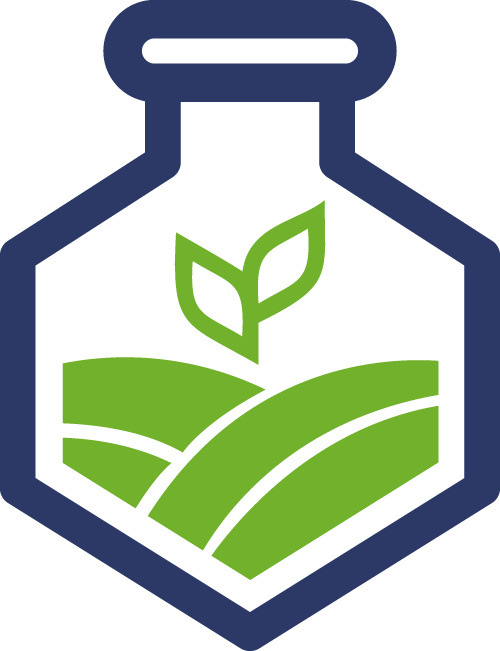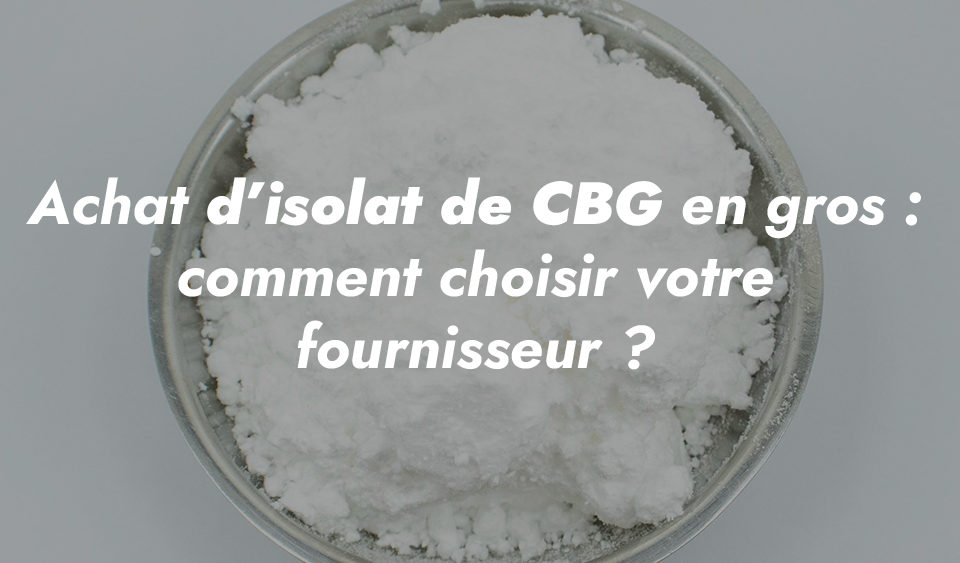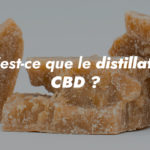
CBD distillate: definition, production, benefits and uses
October 22, 2024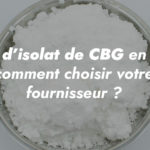
Buying CBG isolate in bulk: how to choose your supplier?
November 26, 2024In the world of cannabinoids, CBC (cannabichromene) is still little-known. However, this minor cannabinoid is attracting growing interest among CBD professionals and researchers alike.
Like THC and CBD, CBC plays a role in the entourage effect, the synergy of cannabis compounds that optimizes therapeutic effects. But beyond this function, cannabichromene is distinguished by specific properties, notably its anti-inflammatory and antidepressant potential.
Faced with ever-changing consumer expectations and the rise of products enriched with rare cannabinoids, understanding the applications of CBC could represent a real opportunity for market players.
This article offers a comprehensive exploration of this compound: its biosynthesis, its potential effects, and the opportunities it offers in the development of innovative products.
What is CBC?
Although CBC is less abundant than THC or CBD, it's interesting to note that it's the third most synthesized cannabinoid in the plant! Along with CBN (cannabinol) and CBG (cannabingerol), CBC is therefore one of the main minor cannabinoids... And very little is known about it!
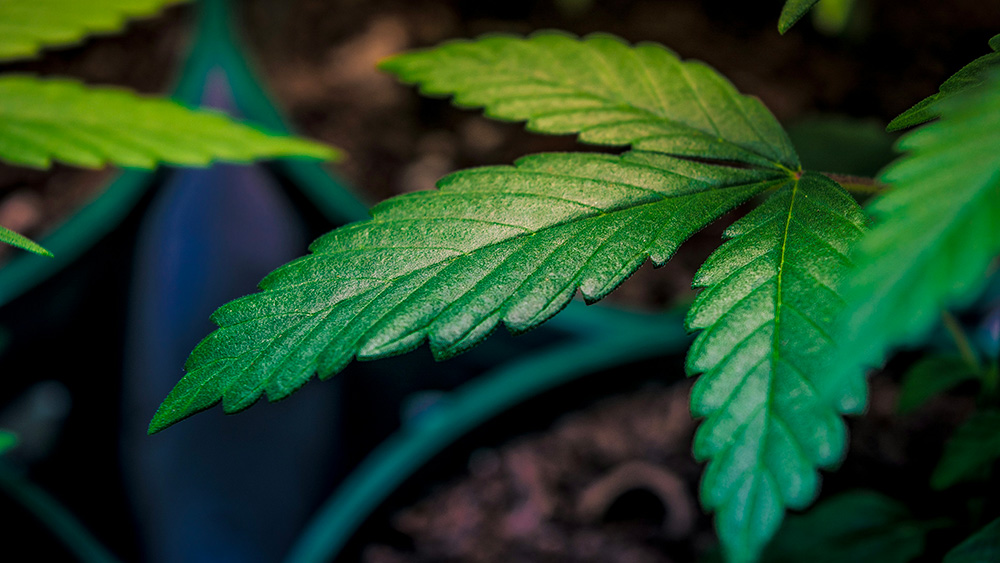
Discovery
Cannabichromene (CBC) was discovered in 1966 by renowned chemist Raphaël Mechoulam, often considered one of the pioneers of cannabinoid research. By exploring the chemical compounds of cannabis, Mechoulam and his team identified CBC as a distinct cannabinoid, marking a key step in understanding the complexity of this plant.
This discovery was made possible by advances in organic chemistry and analytical techniques such as chromatography and mass spectrometry. These methods, which are used in the industry to produce hemp extracts, make it possible to separate and characterize the various compounds present in cannabis.
Biosynthesis
The biosynthesis of CBC begins with oleivetolic acid and geranyl pyrophosphate, which combine to form cannabigerolic acid (CBGa). As you probably know, this is the common precursor of many cannabinoids.
Then, under the action of the enzyme CBCa synthase, CBGa is cyclized into cannabichromenic acid (CBCa). This enzymatic process is crucial, as it determines the metabolic path taken by CBGa to produce different cannabinoids. In fact, at this stage, CBGa also produces all the other cannabinoids in their acid form: CBDa, THCa and so on.
Once formed, CBCa undergoes decarboxylation, usually induced by heat or exposure to light. This oxidation process results in the loss of a carboxyl group and conversion to CBC.
Legal framework for CBC in France
CBC is legal in France. This molecule is not classified as a narcotic by French or European regulations. Unlike THC, CBC has no psychoactive effects, making it compliant with the safety and control criteria required by the authorities.
What's more, CBC is generally extracted from industrial hemp varieties authorized in France, respecting a maximum THC threshold of 0.3%.
French legislation therefore allows the production, import and marketing of products containing CBC, provided they comply strictly with current standards, particularly in terms of traceability and the origin of raw materials.
Action on the body
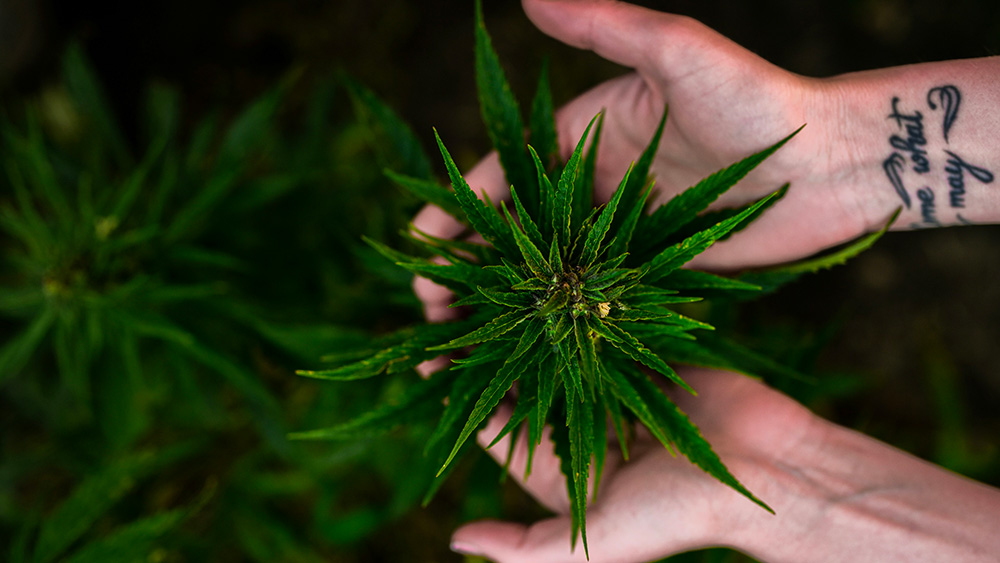
CBC is still relatively unexplored compared with better-known cannabinoids such as THC or CBD. However, initial research is providing valuable insights into its behavior in the body. These data allow us to sketch out its therapeutic potential, even if further studies are needed to deepen this knowledge.
BCC and the endocannabonoid system
The endocannabinoid system (ECS) is a complex biological network that plays a key role in regulating many bodily functions, such as mood, pain, appetite and sleep.
As a reminder, it functions mainly via two types of receptor: CB1, present in the central nervous system, and CB2, mainly located in the immune system. These receptors interact with endocannabinoids produced naturally by the body, as well as with cannabinoids derived from the cannabis plant.
CBC acts on this system in a unique way. Unlike THC, which binds directly to CB1 receptors, or CBD, which modulates their activity, CBC does not bind directly to CB1 or CB2 receptors (although some studies suggest an antagonistic role with the CB2 receptor).
According to some studies, CBC acts primarily on alternative targets such as TRP (Transient Receptor Potential) receptors, particularly TRPV1 and TRPA1, involved in the modulation of pain and inflammatory responses.
Furthermore, it would appear that CBC influences the concentrations of endocannabinoids such as anandamide, not by directly blocking the enzymes that degrade it, but by acting as an amplifier of its signaling in the ECS. This mechanism offers interesting prospects for exploiting BCC in non-psychoactive treatments for pain or chronic inflammation.
Safety of CBC
CBC is generally considered safe to use. In fact, preliminary studies indicate that CBC has no significant toxicity and is well tolerated by the body.
What's more, unlike THC, CBC is not psychoactive, which reduces the risk of undesirable side effects linked to altered perception.
However, it's important to note that CBC research is still in its infancy, and further clinical studies are needed to confirm its long-term safety profile. It is therefore advisable toconsult a healthcare professional before incorporating CBC-containing products into a therapeutic routine, especially in the presence of pre-existing medical conditions or when taking other medications.
Benefits and potential properties of CBC
As already mentioned, CBC acts on the functioning of our endocannabinoid system, giving it a number of potential therapeutic properties.
Anti-inflammatory potential 🔥
CBC is recognized for its promising anti-inflammatory properties.
Indeed, studies have shown that CBC can reduce inflammation by interacting with TRPV1 and TRPA1 receptors, which play a crucial role in the perception of pain and inflammation. By activating these receptors, CBC promotes the release of natural endocannabinoids such as anandamide, increasing their concentration in the body and helping to modulate the inflammatory response.
What's more, research has shown that CBC, when combined with other cannabinoids such as THC, can exert a synergistic anti-inflammatory action, reinforcing its efficacy.
Although further studies are needed, these findings suggest that BCC could be a natural alternative to traditional anti-inflammatory drugs, with notable therapeutic potential for conditions such as chronic pain.
Anti-stress properties of CBC 🫠
As we've just seen, CBC binds to TRPV1 and TRPA1 receptors, influencing the release of endocannabinoids such as anandamide. Often referred to as the "happiness molecule", anandamide promotes a sense of well-being and relaxation, helping to alleviate stress-related symptoms.
What's more, CBC could act synergistically with other cannabinoids, such as CBD, to enhance their anti-stress effects.
However, further research is needed to fully understand the mechanisms of action of CBC and confirm its effectiveness in stress management.
Cancer research turns its attention to CBC 🧬
Recent research has highlighted the potential anti-cancer properties of CBC. Indeed, a study published in Molecules examined the effect of CBC on urothelial carcinoma cells.
The results revealed that CBC, alone or in combination with Δ9-tetrahydrocannabinol (THC), induces significant cytotoxicity in these cancer cells. This action is associated with inhibition of cell migration and alterations in cytoskeletal organization, suggesting a disruption of cell motility mechanisms essential to tumor progression.
In simpler terms, CBC, alone or combined with THC, can kill certain cancer cells. It also appears to slow their movement and alter their internal structure, which may prevent their spread and development in the body.
These findings indicate that BCC could play a crucial role in the development of new therapeutic strategies targeting cancers.
Possible anti-acne properties 🧑🏼🦱
A group of researchers, having already studied the effects of CBD on acne, have extended their work to other cannabinoids, notably CBC, to explore similar actions.
Preliminary results are promising, revealing that CBC could act as a potential acne inhibitor. This skin condition is mainly caused by overproduction of sebum and inflammation of the sebaceous glands. And CBC has demonstrated potential anti-inflammatory properties while reducing excessive lipid production in these glands.
In fact, it seems capable of reducing levels of arachidonic acid (AA), a key element in lipid formation. Although further studies are needed to confirm these results, CBC could ultimately provide an effective solution for the treatment of acne.
CBC, potential neuroprotective powers 🧠
A 2013 study published in Neurochemistry International explored the effects of cannabichromene (CBC) on adult neural stem/progenitor cells (NS/PCs) in mouse brain.
Researchers have discovered that CBC helps certain brain cells to stay healthy and thrive. What's more, it encourages these cells to develop into astrocytes, an essential cell type that protects and supports neurons in the brain.
These results suggest that BCC may play a significant role in adult neurogenesis, offering interesting prospects for the development of therapies to treat neurodegenerative diseases and brain damage.
CBC and entourage effect
As you probably know, the entourage effect is a key concept in the understanding of cannabinoids. It describes the phenomenon whereby the different compounds in cannabis, such as cannabinoids, terpenes and flavonoids, interact to produce effects that are amplified in relation to the individual action of each molecule.
In other words, it's the synergy between these compounds that delivers optimized benefits, whether therapeutic or well-being.
Like all hemp molecules, CBC plays an active role in this entourage effect.
Although it has interesting properties when used in isolation, it becomes even more powerful when acting in collaboration with other cannabinoids such as THC, CBD or CBG. This interaction between molecules can, for example, enhance analgesic or anti-stress effects, offering a more complete and harmonious experience.
So, to take full advantage of the properties of CBC and other cannabis compounds, the development of full spectrum products is particularly relevant. These formulations retain all cannabinoids and terpenes, maximizing the benefits of the entourage effect for consumers.
However, as we'll see in the rest of this article, the current offer is essentially focused on CBC-enriched products.
CBC products: current offering and outlook
CBD industry professionals, you may be thinking of marketing products enriched with CBC. Here are a few things you need to know to guide you in your project.
How are CBC products made?
CBC-enriched products are the result of meticulous processes aimed at extracting and concentrating this cannabinoid naturally present in small quantities in the cannabis plant. It all starts with the selection of specific hemp or cannabis varieties rich in CBC.
Once the raw material has been harvested, advanced extraction methods are used, such as supercritical CO₂ extraction or solvent-based extraction, to isolate the cannabinoids while preserving their integrity.
After extraction, the compounds are purified to obtain CBC isolate. This process may include chromatographic steps to separate the cannabinoids and remove impurities. In fact, CBC isolate is nothing more than pure CBC crystals.
Next, CBC isolate can be formulated into a variety of products, such as oils, capsules, creams or dietary supplements, often in combination with other cannabinoids to benefit from the entourage effect.
As you'd expect, extracting CBC is complex and costly, which explains why CBC-enriched products are generally more expensive than CBD-based hemp derivatives.
What CBC products are available?
At present, there are very few stores in France offering CBC products. Nevertheless, given isolate's versatility, you can find all kinds of products:
- CBC-enriched oils: generally combined with CBD or CBG, depending on the effect you wish to promote;
- E-liquids
- Flowers
- Resins
- Pre-rolled
- ...
In short, the list goes on and on, because, as we said, it's quite simple to add CBC isolate to the formulation of a base product.
Is CBC a growth market?
And here's THE question on the minds of many in the industry: apart from CBD, what other molecule is worth marketing? Cannabinol (CBN), another minor cannabinoid, has a proven track record. It features in the majority of store catalogs. The same is true of cannabigerol (CBG). So why not CBC?
From a technical point of view, the formulation of CBC products is no more complex than that of CBN or CBG products. And, as we've seen, the supply in this field is not (yet) saturated, which suggests business opportunities!
Finally, it's worth considering that, because of its possible beneficial properties, CBC's potential seems to lie in the wellness rather than recreational sphere.
Moreover, as we have seen, CBC has no psychoactive effects, making it a poor candidate for consumers of so-called "recreational" hemp derivatives. In this respect, CBN and, above all, 10-OH-HHC are far more promising.
Where to buy wholesale CBC?
Green Exchange is the leading wholesale supplier of hemp extracts. If you're looking for a partner to develop CBC-enriched products, don't hesitate to contact our sales team. We'll be delighted to provide you with personalized support for your project.
